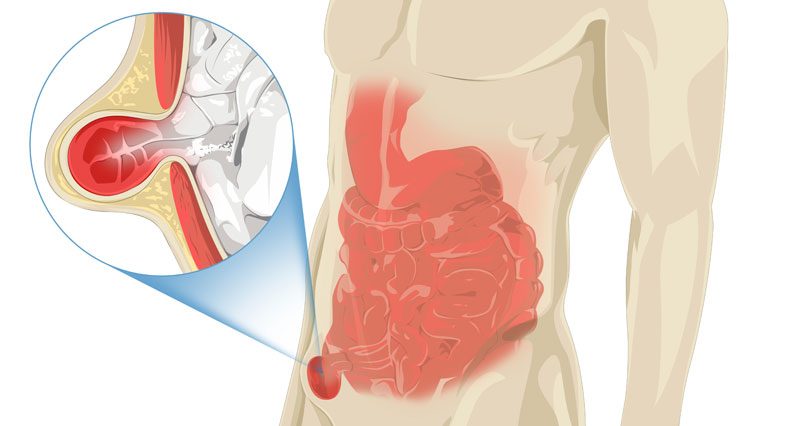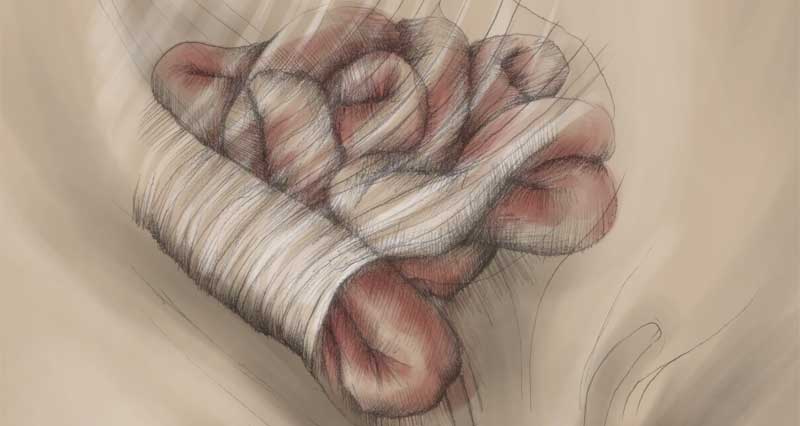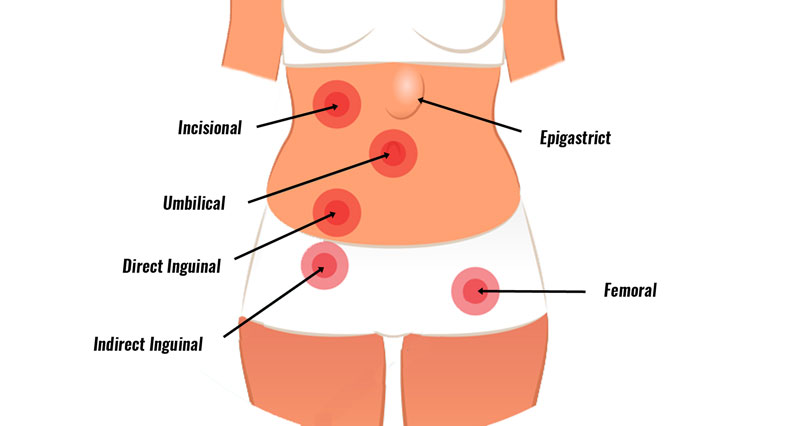An inguinal hernia occurs when part of the internal tissue which can be fat, muscle, or intestine bulge through a weakness in the overlying abdominal wall.
Inguinal hernia symptoms
- Symptoms include pain in the groin during exercise.
- The pain is likely to increase when coughing or sneezing.
- You may see a lump in your groin area, which may disappear when you lay down.
- Some patients describe a ‘dragging’ sensation on one side of their lower abdomen.
What is an Inguinal hernia?
An Inguinal hernia is a protrusion of the contents of the abdomen (belly) through the inguinal canal. It usually appears as a swelling in the groin area.
Eighty percent are inguinal, men are 25 times more likely to suffer an inguinal one and 5% of the population could suffer at some point. Inguinal can either be direct or indirect.
Direct
Direct happens when part of the abdomen pushes through a weak point in the abdominal wall and into the inguinal canal.
Indirect
Indirect ones occur when part of the abdomen bulges through the deep inguinal ring. This is less common and occurs due to a birth defect. The herniating tissues are at risk of complications such as strangulation (pinching) which can cause intestinal blockages. Eventually, this may cut off blood supply, therefore immediate treatment is required.
Inguinal hernia treatment
If you suspect you may have an inguinal hernia, see a doctor immediately. It will not get better through rest. A doctor or surgeon will need to operate to repair your abdominal wall.
Inguinal hernia surgery
- If the abdominal wall is ruptured it will not get better by resting and surgery to repair it will be needed.
- Operations should be performed at the earliest convenience.
- Injuries with complications such as strangulation may require emergency surgery.
- Hernias which occur right in the crease of the groin are most common. They account for 3 out of 4 hernias and are more common in men than women.
What happens if I just leave it?
If your hernia is not treated then further contents of your abdomen such as the intestines can protrude causing it to grow. The intestines can become pinched, causing blockages and ischemia which is a lack of blood to the area. If left untreated this can eventually cause fatal consequences.
References
- Caudill P1, Nyland J, Smith C, et al. Sports hernias: a systematic literature review. Br J Sports Med. 2008 Dec;42(12):954-64


